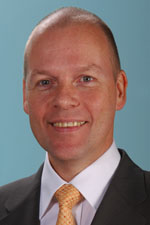

Marvin Schick with then rosh yeshivah of Beth Medrash Govoha Rabbi Yosef Chaim Shneur Kotler, June 1979. When he saw an important cause go unaddressed, he wrote and spoke eloquently about it in public and, when necessary, built the necessary organization and infrastructure to begin the important work.ĭr. Schick had a keen eye for vital but overlooked communal necessities and spent years trying to convince the community that it needed to reallocate resources. Schick’s success to his public speaking and op-ed writing abilities, his political background, which included a stint as Jewish liaison in the administration of New York Mayor John Lindsay, and his willingness to “appeal to the larger Jewish community” outside of strictly Orthodox circles.ĭr. “He wasn’t following in anyone’s footsteps.”įriedlander attributes Dr.
#Dr schick full
“He was a trailblazer, influencing a full generation of advocates Jewish advocacy was in its infancy,” says Ezra Friedlander, who has provided government and public relations counsel, mostly centering on Jewish issues, to nonprofit organizations for two decades. “There’s the Jewish People-and Jewish people,” the larger Jewish community and individual, often unsung Jews. “If Rabbi Akiva and Rabbi Eliezer Hagadol would come to our yeshivos today, they would be turned away,” he once wrote. A prolific writer and heartfelt advocate for Jewish children, he decried the “culture of rejection” in our schools. Focusing on the importance of Jewish education, he visited hundreds of Jewish schools around the country. He had both a PhD (in constitutional law, from New York University) and rabbinical ordination (from the Rabbi Jacob Joseph School). Schick, who died in April 2020 at age eighty-five, ranked among the best-known national spokesmen for Jewish causes. A typical achievement of a man who served as an unpaid advocate of many Jewish interests. Schick’s uncompromising, visible assertion of his Jewish observance was credited with playing a role. Schick’s presence directly influenced the governor’s subsequent actions in favor of the Orthodox community, Orthodox Jews did receive expanded rights during the Rockefeller administration, and Dr. Though no one with inside information can prove that Dr. Schick demonstrated an uncompromising commitment to integrity and an example of how his attitude was appreciated by those who recognize and value that unique quality. Rockefeller reportedly told one of his aides, “I prefer to work with those who observe the Sabbath themselves rather than those who only advocate for it.”

Schick, who always wore a kippah, was the only Orthodox, Sabbath-observant Jew in the group. Their mission was to request religious accommodations for Orthodox Jews on such issues as the right to observe the Shabbath without endangering one’s employment. Schick, then a professor at Hunter College in Manhattan, was part of a delegation of leaders from several Jewish organizations who were meeting with the governor and his staff in Albany. During the administration of Nelson Rockefeller, governor of New York State from 1959 to 1973, Dr. Department of Health and Human Services, Administration for Children and Families, The Brady Educational Foundation, the Brooke Astor Foundation for New York City Education, The New York Community Trust, and the Caplan Foundation for Early Childhood.A story, possibly apocryphal, is told about the late Dr. Schick’s work has been funded by The U.S. Most recently, her focus has been on the development and implementation of classroom-based oral storytelling interventions that support low-income, ethnic minority children’s reading readiness by bridging home-school practices in an authentic and meaningful manner.
#Dr schick professional
She has also collaborated on a series of projects aimed at supporting the professional development of early childhood educators throughout New York City, as well as from across New York State. Her research has probed the role of continuity in home-school book sharing practices in supporting low-income Latino Head Start children’s emergent literacy development, and highlights the importance of promoting parents’ use of culturally-relevant practices. Schick’s work to date has focused on cultural variations in children’s language, literacy, and narrative development, with a particular emphasis on the individual and combined contributions of the home and preschool contexts on these school readiness skills. Adina Schick is a Developmental Psychologist who received her doctorate from the Department of Applied Psychology at New York University in 2012.


 0 kommentar(er)
0 kommentar(er)
